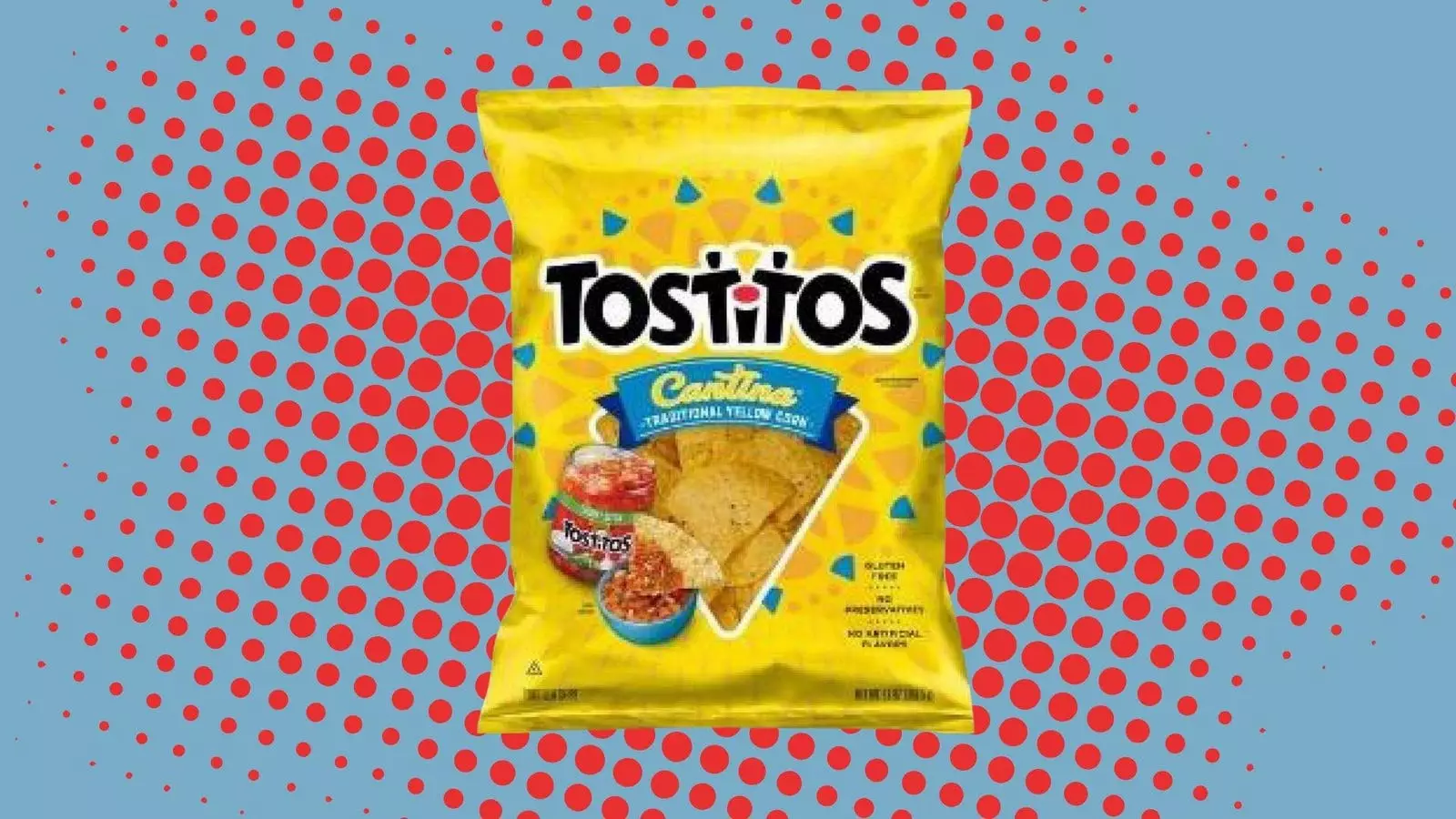In recent developments, Frito-Lay’s Tostitos brand has initiated a Class I recall on a specific batch of their Cantina Traditional Yellow Corn Tortilla Chips, highlighting a serious issue within food safety protocols. The crux of the problem lies in the potential presence of nacho cheese-flavored chips within bags that are mislabeled, failing to declare a key allergen: milk. While this might seem like a harmless mix-up to casual snackers, it poses a significant threat to individuals with milk allergies or sensitivities, making it a critical concern that exceeds mere inconvenience.
This incident showcases the discrepancies that can arise in the food supply chain, illustrating the fragility of consumer trust when it comes to food labeling. The reality is that a packaging error like this can have drastic consequences. For someone allergic to milk, consuming these chips could provoke severe reactions, underscoring why vigilance in allergen declarations is imperative for health and safety.
The Class I Recall Explained
A Class I recall, which the FDA has classified this incident as, is reserved for situations with a substantial likelihood of causing severe health consequences or even death. This classification emphasizes the urgency and seriousness of the matter at hand. Approximately 1,300 bags are believed to be affected, a figure that may seem staggeringly low in the grand scheme of production but is more than enough to harm susceptible consumers.
The shelves of supermarkets in several states, including Alabama, Florida, Georgia, and others, may harbor these dangerous bags, putting individuals at risk unaware they are purchasing a potentially hazardous product. The very concept of risk in food consumption is intricate, often dismissed by those unacquainted with the severe implications that mislabeling can usher.
A Consumer Perspective on Allergen Labeling
For the average consumer, reports of food recalls can often come across as background noise, unworthy of strenuous concern unless directly affected. However, the narratives of those living with food allergies paint a much different picture; for them, the safety of food isn’t about mere convenience but is rather a question of life and death. This incident illustrates a narrative of trust—consumers entrust food manufacturers to ensure that what’s contained in a product aligns with what is advertised on its label.
For every grocery trip, individuals with allergies navigate a perilous landscape crafted by consumer goods, hoping that their defense against harmful reactions lies within a simple ingredient list. It becomes painfully apparent that every inaccurately labeled package erodes this faith, not only toward Frito-Lay but toward the entire food industry. Each misstep contributes to an environment of skepticism, where shoppers become wary of even familiar products.
Frito-Lay’s Response: Speed vs. Transparency
Frito-Lay’s rapid response to this issue—with a voluntary recall and timely disclosure to the FDA—does showcase diligence on their part, hinting at a company culture that values consumer safety. Such proactive engagement reflects well on the organization; however, it does raise the question of how such mix-ups can occur in the first place. What systemic flaws allow for these mistakes within large-scale production and distribution?
Simply put, speed and transparency are commendable, yet they shouldn’t be a patch for underlying defects in quality control. This recall serves as a stark reminder of the challenges manufacturers face while balancing efficiency with uncompromised safety standards. The food industry must continually innovate to prevent future mishaps and reinforce target practices that emphasize thoroughness in allergen identification.
The Bigger Picture: The Key to Trust in Food Safety
As narratives of mishaps like Frito-Lay’s pursue headlines, they ignite crucial conversations about food safety practices and consumer trust. This incident underscores that the ramifications of food labels extend far beyond personal preference; they speak to the deeper relationship between consumers and providers.
Every time a product is purchased, consumers are placing their faith in the accuracy of the information presented. Thus, it’s not merely good business for food companies to ensure accurate labels—it is a fundamental duty. As the recall exemplifies, staying vigilant about what we consume is paramount and demands our attention. As consumers, we must not only keep our health and safety at the forefront but also advocate for integrity within the food industry, fostering a narrative that prioritizes safety over sales. The relationship between consumers and the food they consume should hinge on unwavering accountability, clarity, and respect—values that should steer the future of food production and labeling.


Napsat komentář